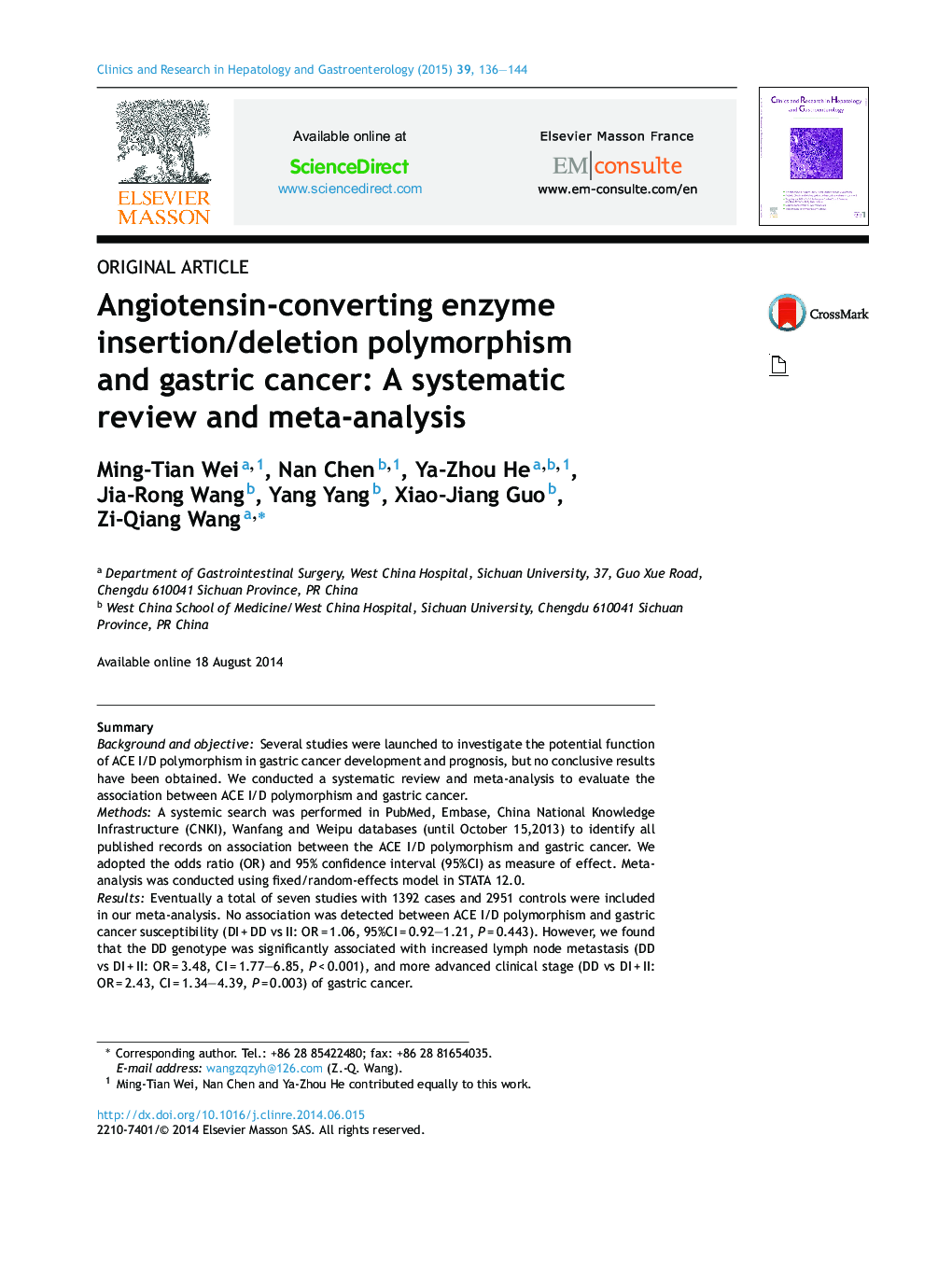| Article ID | Journal | Published Year | Pages | File Type |
|---|---|---|---|---|
| 3286251 | Clinics and Research in Hepatology and Gastroenterology | 2015 | 9 Pages |
SummaryBackground and objectiveSeveral studies were launched to investigate the potential function of ACE I/D polymorphism in gastric cancer development and prognosis, but no conclusive results have been obtained. We conducted a systematic review and meta-analysis to evaluate the association between ACE I/D polymorphism and gastric cancer.MethodsA systemic search was performed in PubMed, Embase, China National Knowledge Infrastructure (CNKI), Wanfang and Weipu databases (until October 15,2013) to identify all published records on association between the ACE I/D polymorphism and gastric cancer. We adopted the odds ratio (OR) and 95% confidence interval (95%CI) as measure of effect. Meta-analysis was conducted using fixed/random-effects model in STATA 12.0.ResultsEventually a total of seven studies with 1392 cases and 2951 controls were included in our meta-analysis. No association was detected between ACE I/D polymorphism and gastric cancer susceptibility (DI + DD vs II: OR = 1.06, 95%CI = 0.92–1.21, P = 0.443). However, we found that the DD genotype was significantly associated with increased lymph node metastasis (DD vs DI + II: OR = 3.48, CI = 1.77–6.85, P < 0.001), and more advanced clinical stage (DD vs DI + II: OR = 2.43, CI = 1.34–4.39, P = 0.003) of gastric cancer.ConclusionOur results indicated that ACE I/D polymorphism could not be directly associated with gastric cancer susceptibility, but might play important role in gastric cancer prognosis. Future studies with larger sample size are warranted for further evaluation.
